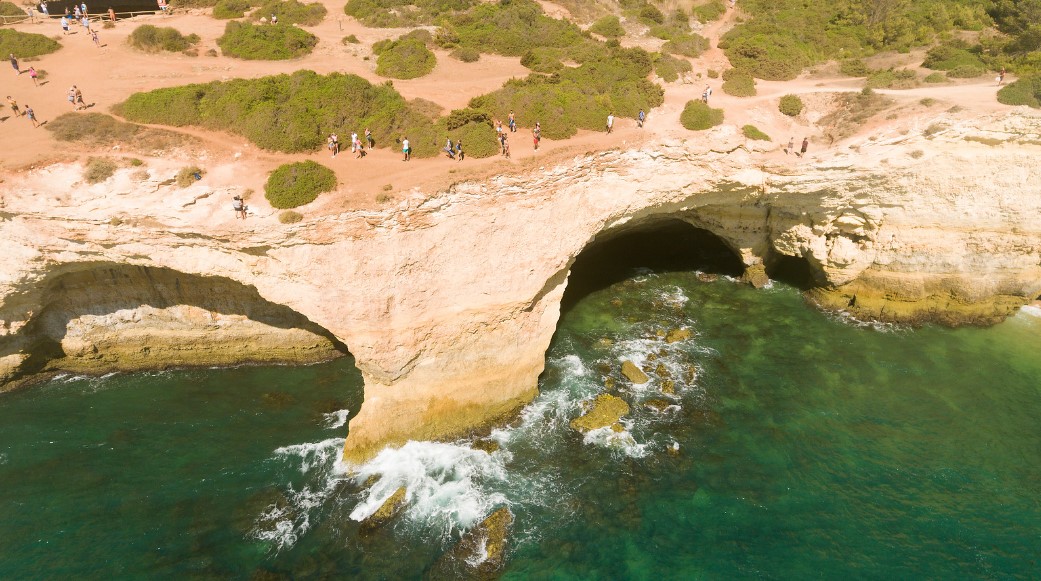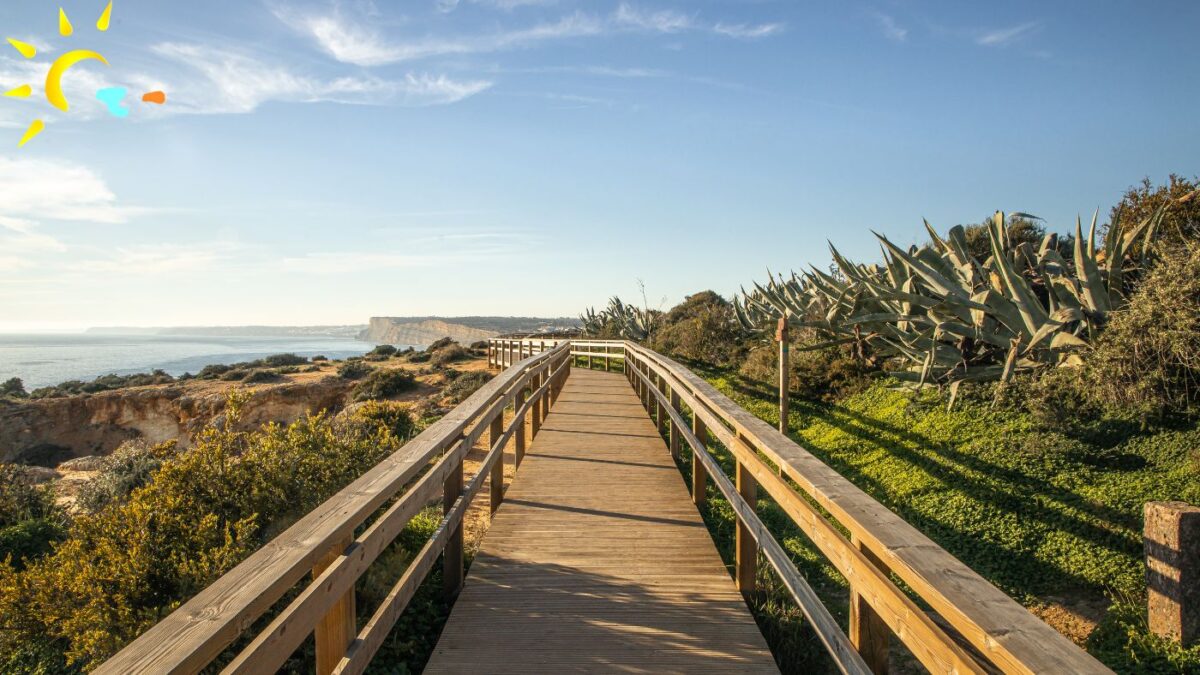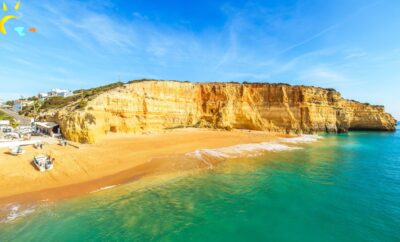Best Time to Visit the Algarve: A Seasonal Weather Overview
Algarve is the southernmost part of Portugal and boasts sandy beaches, turquoise water, and warm weather all year round. Investigate the Algarve’s weather to choose the best time to visit this breathtaking location. The region experiences sunny summers and warm winters. However, the season is a very important aspect when it comes to vacation. This general guide offers a climatic breakdown of the Algarve that will allow beach lovers, nature lovers, and history lovers to pinpoint seasons in the region. One should remember sunscreen and shades for an exciting Algarve experience.
Table of Contents
Understanding Algarve’s Weather
They have a Mediterranean type of climate characterized by a hot and dry climate during the summer, a cool and wet climate during the winter, and periodical heavy rains all throughout the year. The regional latitude, coastal and inland openness to the Atlantic Ocean, and the mountainous region, therefore, determine this climate. The warm climate of the region, expressed through the mild temperature of the water, is attributed to sea currents well known as the Gulf Stream and the Canary Current, which make it possible to engage in beach carnivals and water sports activities, among others.
Measures relative to the Algarve display distinct rainy and dry seasons; in the rainy season, there is a high amount of precipitation, while in the dry season (June to August), there is little or no precipitation at all, with the transition months of April, May, and September exhibiting moderate amounts of precipitation. The seasonal changes in temperature are also moderate, enabling outsiders to carry out their activities outside all seasons of the year.
There are few temperature extremes, with temperatures moderating fairly well during the hot summer months, though varying from about 28 to 30 °C; during the cool winter months, it is relatively chilly at about 16 to 18 °C; and spring and autumn are fairly warm.
Best Time to Visit the Algarve
Summer in The Algarve (June to August)
The best time to visit the Algarve is during the winter August, since it’s the summer season in the Algarve region, characterized by warm weather and vibrant activities at the beach. Flights and hotels should be booked 3–4 months before the start of your vacation. Look for packages, avoid the hot spots, and use ‘compare and buy’ options. During summer, you will find music festivals such as the Splash Festival, Rock in Rio, and Vodafone ON Festival, and summer festivals such as Portimão Sardine Festival, Festival MED, Silves Medieval Fair, and Olhão Seafood Festival.
Other recreational activities include beach and water activities such as surfing, windsurfing, kayaking, paddle boarding, boat tours, snoring, snorkeling, and scuba diving. Temperatures and sunshine hours in the Algarve during the summer are between 24°C \ and ~ 29°C, with about 11–12 hours of sunshine per day.
Summer is the perfect time to enjoy Algarve’s stunning coastline.
- Surfing and windsurfing
- Kayaking and paddleboarding
- Excursion boats are mainly used for the purpose of visiting sea grottos.
- Snorkeling and scuba diving
Spring in Algarve (March to May)
Winter in the Algarve from November to February focuses more on relaxation, while summer during June, July, and August is a period of heavy rain, giving way to fall from September to November, which makes the spring from March to May the best time to engage in celebrations and interact with the community. Some beautiful places show joyful and colorful Easter celebrations, including Easter processions in old cities, the almond blossom festival, Easter bread festivals, etc.
Additionally, Spring has lower prices for accommodation, less competition, and an easy-to-schedule restaurant and attractions. The nice weather offers opportunities for numerous activities, including trekking to coastal region trails, golfing on outstanding courses, birding in natural parks, and biking around ancient villages. The moderate weather is between 60 and 70 degrees, with wildflowers and fully blooming almonds and oranges.
This mild climate enables tourists to engage in beach and site-seeing activities without having to endure the heat of summer. That is why the region will also change further as the summer approaches, and new opportunities and challenges will appear for tourists.
Autumn Season in Algarve (End of September to November)
The best time to visit the Algarve is during summer, which is considered to end in Portugal in August, and the entire autumn season of September, October, and November is a period of recreation in the Algarve. The summer and autumn seasons characterizing this region have a daytime temperature of between 20 and 25 degrees Celsius (68 and 77 degrees Fahrenheit). In contrast, in the evenings, the temperatures are cooler for stunning beach walks or outdoor dining.
Tourist numbers reduce in autumn, and this is an advantage as there is ample space and fewer tourists at the beaches and attractions, more contact with native people, and accommodation is cheaper. The vineyards in the region open during the grape harvest season, a fact that goes hand in hand with the features and attractions such as picking grapes, wine-making demonstrations, wine-tasting sessions, and even a visit to the wine producers within the region.
It also turns into a perfect time for playing golf and for those who love nature since most of the golf courses in the region are fewer with beautiful scenery. The park and bird watching are also great to visit during this time due to the region’s natural parks.
Winter in Algarve (December to February)
The best time to visit the Algarve is during the winter, between December and February, because there you will have cooler temperatures than in the northern countries of Europe. Still, you will find a few tourists visiting the place. Popular New Year’s activities in the region of Portugal include fireworks over the coastal line, parties on the sunny beaches of the most prominent resort areas, and, more specifically, traditional New Year’s activities as per Portuguese culture.
Hiking and skiing on practical courses; bird-watching tours at native reserves; beautiful strolls and golfing on the beautiful routes and golf courses—not to mention visiting historical towns devoid of the summer rush. There is occasional rainfall, and the climate is not as hot in the Algarve, with average temperatures in December standing at between 12°C and 17°C, in January between 11/16°C, and in February between 12°C and 17°C, respectively.
Mild Winter Climate Compared to Northern Europe
The seasonal variation of temperature in the Algarve best fits the climate of mild winters, with the temperatures at about or slightly below 60F during the day. A smaller number of tourists means tourists can get to see real Portuguese culture at relatively cheaper accommodation prices. The Algarve is a year-round golfing destination. Still, the best conditions for playing are perceived in spring—March through May—and autumn—September through November—for falling temperatures and spectacular views. If you are trying to save money, then visiting between April and May or October and November will be cheaper, and if you don’t mind cold weather, then there is always winter time (December, January, and February).
Every year, music festivals, local fairs, carnivals, and the annual Faro International Motorcycle Rally are popular cultural occasions situated in the Algarve. For trekkers and bird watchers, the place is best to visit in the spring, while for cyclists and nature walkers, the best time to visit is in the autumn; however, avoid going in the summer as the temperature rises very high. Beach lovers can plan it from June to September; however, if visitors want fewer crowds, they should plan it for May or October.
The climate of the Algarve is rather mild; in fact, the Algarve has over 300 sunny days annually, and it is possible to say that every season has its attractions. Summer is hot and beaches are more attractive, while spring and autumn are comparatively cooler and less crowded. As for the time of the year, it all depends on an individual’s specific interests and desires.









